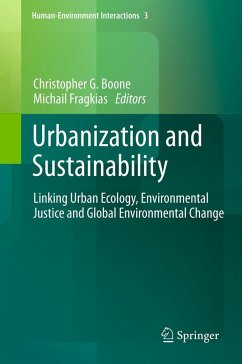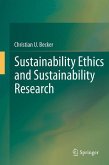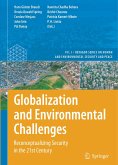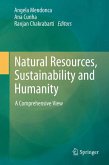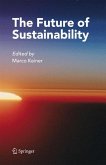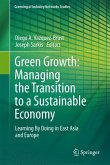The grand challenge for the coming decades will be to transform the ways we think about and act upon the relationship between people and the environment in order to transition towards a sustainable future. from the preface
Urbanization and Sustainability: Linking Urban Ecology, Environmental Justice and Global Environmental Change stems from a 2009 workshop on linking ecology, environmental justice, and global environmental change that the editors organized for the International Human Dimensions Programme on Global Environmental Change (IHDP), an international scientific initiative that catalyzes and coordinates research on the human dimensions of environmental change. The book addresses key themes of the Urbanization and Global Environmental Change Programme, a core project of the IHDP.
The book draws together three major themes: Global Environmental Change, incorporating a range of interactions between societies and ecosystems; Urbanization, because urbanization processes will drive and respond to challenges of environmental change; and Justice, because the most vulnerable members of society bear a disproportionate burden of the ill effects of environmental change and urbanization.
Case studies explore the Million Trees initiative in Los Angeles; the relationship of cap-and-trade policy, public health, greenhouse gas emissions and environmental justice in Southern California; Urbanization, vulnerability and environmental justice in the Brazilian cities of Rio de Janeiro, Curitiba and São Paulo, and in Antofagasta, Greater Concepción and Valparaiso in Chile; Sociospatial patterns of vulnerability in the American southwest; and Urban flood control and land use planning in Greater Taipei, Taiwan ROC.
The editors proceed from the proposition that sustainability means more than surviving it is about envisioning a desirable, plausible future and working towards that goal. Case studies explore the Million Trees initiative in Los Angeles; the relationship of cap-and-trade policy, public health, greenhouse gas emissions and environmental justice in Southern California; Urbanization, vulnerability and environmental justice in the Brazilian cities of Rio de Janeiro, Curitiba and São Paulo, and in Antofagasta, Greater Concepción and Valparaiso in Chile; Sociospatial patterns of vulnerability in the American southwest; and Urban flood control and land use planning in Greater Taipei, Taiwan ROC.
Urbanization and Sustainability: Linking Urban Ecology, Environmental Justice and Global Environmental Change stems from a 2009 workshop on linking ecology, environmental justice, and global environmental change that the editors organized for the International Human Dimensions Programme on Global Environmental Change (IHDP), an international scientific initiative that catalyzes and coordinates research on the human dimensions of environmental change. The book addresses key themes of the Urbanization and Global Environmental Change Programme, a core project of the IHDP.
The book draws together three major themes: Global Environmental Change, incorporating a range of interactions between societies and ecosystems; Urbanization, because urbanization processes will drive and respond to challenges of environmental change; and Justice, because the most vulnerable members of society bear a disproportionate burden of the ill effects of environmental change and urbanization.
Case studies explore the Million Trees initiative in Los Angeles; the relationship of cap-and-trade policy, public health, greenhouse gas emissions and environmental justice in Southern California; Urbanization, vulnerability and environmental justice in the Brazilian cities of Rio de Janeiro, Curitiba and São Paulo, and in Antofagasta, Greater Concepción and Valparaiso in Chile; Sociospatial patterns of vulnerability in the American southwest; and Urban flood control and land use planning in Greater Taipei, Taiwan ROC.
The editors proceed from the proposition that sustainability means more than surviving it is about envisioning a desirable, plausible future and working towards that goal. Case studies explore the Million Trees initiative in Los Angeles; the relationship of cap-and-trade policy, public health, greenhouse gas emissions and environmental justice in Southern California; Urbanization, vulnerability and environmental justice in the Brazilian cities of Rio de Janeiro, Curitiba and São Paulo, and in Antofagasta, Greater Concepción and Valparaiso in Chile; Sociospatial patterns of vulnerability in the American southwest; and Urban flood control and land use planning in Greater Taipei, Taiwan ROC.
From the reviews:
"This collection of 11 essays is a fine contribution to the burgeoning body of literature concerned with environmental issues. Editors Boone and Fragkias have assembled a useful and intriguing mixture of essays with the ultimate goal of achieving an interdisciplinary synthesis for further discussion and contemplation. ... Those based in the disciplines of geography and sociology will be most intrigued by the scholarship offered in this text. ... Summing Up: Recommended. Upper-division undergraduates and above." (P. Gamsby, Choice, Vol. 50 (11), July, 2013)
"This collection of 11 essays is a fine contribution to the burgeoning body of literature concerned with environmental issues. Editors Boone and Fragkias have assembled a useful and intriguing mixture of essays with the ultimate goal of achieving an interdisciplinary synthesis for further discussion and contemplation. ... Those based in the disciplines of geography and sociology will be most intrigued by the scholarship offered in this text. ... Summing Up: Recommended. Upper-division undergraduates and above." (P. Gamsby, Choice, Vol. 50 (11), July, 2013)

